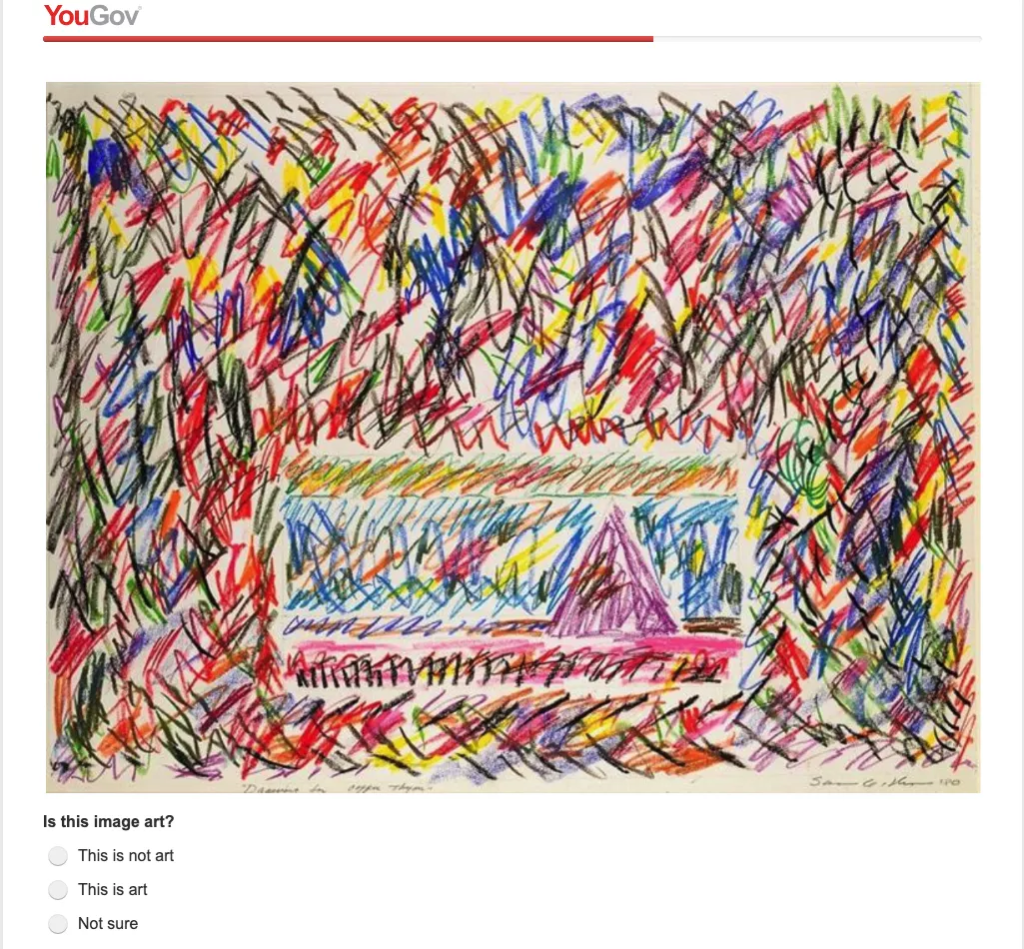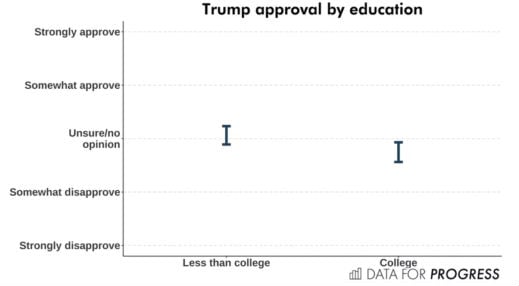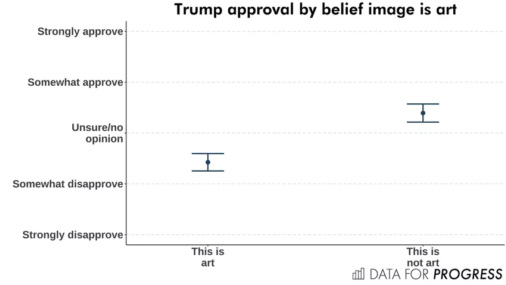Politics
What You Think of This Sam Gilliam Painting Reveals Your True Feelings About Donald Trump, Too, Pollsters Say
The findings have been dubbed the "Coffee Thyme Gap."

The findings have been dubbed the "Coffee Thyme Gap."

Sarah Cascone

Do you like this Sam Gilliam painting? The answer may say more about you than you think.
A study by the progressive think tank Data for Progress has found that participants who approve of president Donald Trump are less likely to consider Sam Gilliam’s colorful abstract drawing Coffee Thyme (1980) a genuine work of art. Those who do consider Gilliam’s work to be art are more likely to disapprove of Trump.
The correlation, which is being called the “Coffee Thyme Gap,” is even bigger than the college-degree gap, another metric commonly used to measure political divisions. Forty-five percent of college graduates approve of Trump—while just a 36 percent of those who like Coffee Thyme also support Trump.

Image courtesy of Data for Progress.
Data for Progress predicted at the outset that Trump advocates would be less likely to appreciate Coffee Thyme based on the so-called “openness to experience” personality trait, according to Vox. More commonly found among people with left-wing political opinions, the “openness to experience” attribute typically indicates a tolerance of diversity. It also often corresponds to a higher level of education and a higher IQ.
Among the more than 1,100 respondents to the Data for Progress poll, 46 percent judged the Gilliam work to be art, while 38 percent disagreed and the other 12 percent were unsure.

Image courtesy of Data for Progress.
The study’s findings are limited to just one work—and one that seems cherry-picked to provoke the “My kid could do that!” response (the image in question is actually a study related to a larger series by the artist). The sample size is also fairly small. Nevertheless, it does provide an interesting hint at how taste in art and political opinion may align.
Another study published earlier this year found that Democrats tend to have more creative personalities than Republicans. The Data for Progress results could also be seen to be in line with a British study published last fall, which found that Brexit supporters typically prefer realistic artworks, while abstraction appeals more to “Remainers.”
The work used in the Data for Progress study is part of the collection of the Minneapolis Institute of Art, which purchased it in 1983. According to the Grove Encyclopedia of American Art, Gilliam’s “Coffee Thyme” series was part of his attempt “to achieve an expressive intensity of color while paying homage to Jackson Pollock and Jasper Johns, claiming a place in the epic tradition of American painting.”